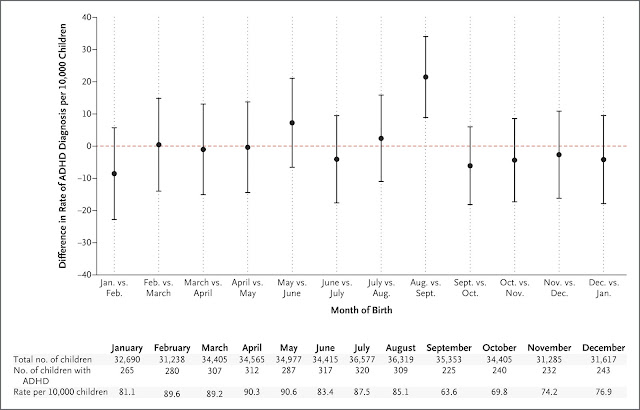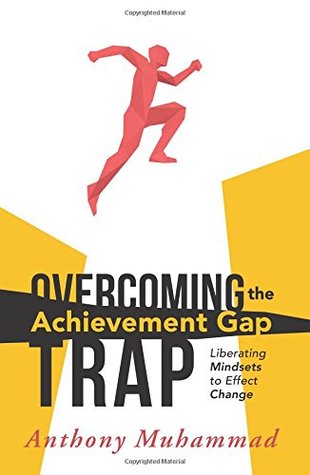Born in August - More Likely to Have ADHD

I was a senior in college when I was 19 years old. I was therefore young compared to most of my peers. Back in first grade when conduct was part of the report card, I should just say that my rating under the subject left a lot to be desired. This continued even in the later years of elementary school where my math grade approached 100% while my conduct grade was stranded at 78%, with 75% as the passing mark. At least, I passed. Imagining myself as a student in an elementary school here in the United States makes me wonder if I would actually be more likely referred to an evaluation for some condition such as attention deficit hyperactivity disorder (ADHD). Perhaps, I would. There is a study that just came out in the New England Journal of Medicine that goes through data on children in the US who were born in the period from 2007 through 2009 and were followed through December 2015. The paper's very interesting finding is that "rates of diagnosis and treatment of ADHD are highe







